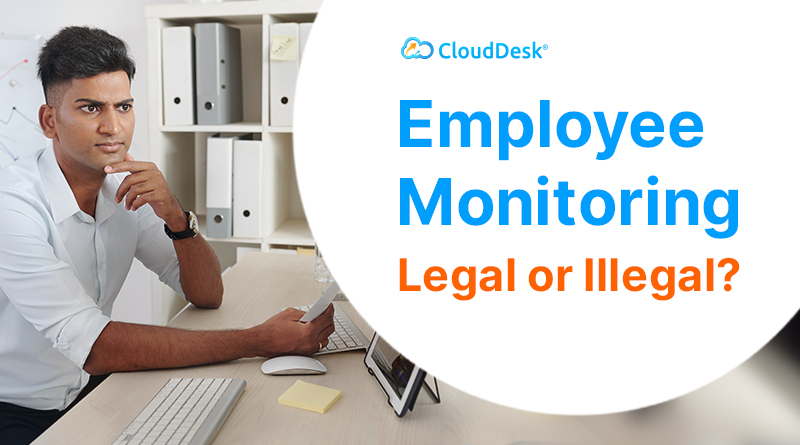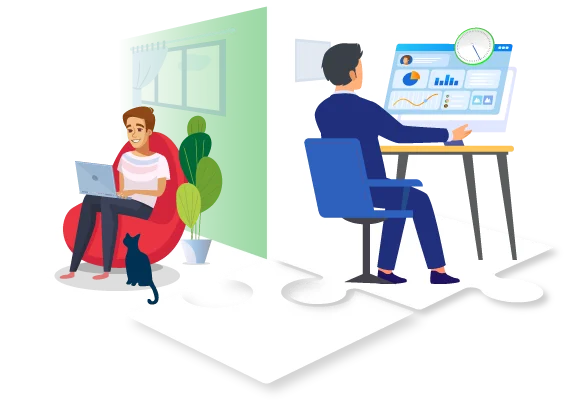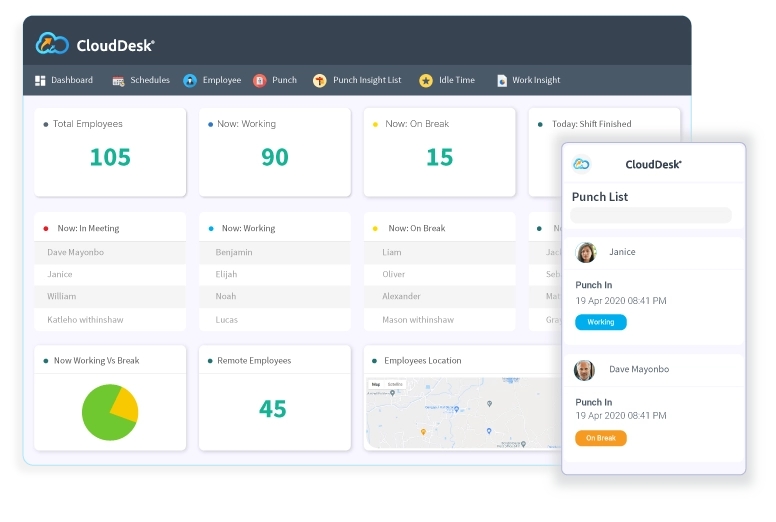The utilization of employee monitoring and time tracking software in a hybrid work environment is a critical issue that must be carefully considered. Companies have been forced to reconsider methods of measuring employee productivity as the adoption of remote working modes has increased.
Every country and state has labor laws that organizations and employers must follow. We will attempt to understand the legality of using employee monitoring and time tracking software in this blog.
Disclaimer: This blog attempts to share information that is available in the public domain. It should not be construed as legal advice. Employee productivity monitoring is not new.
security cameras, GPS tracking, and Manual clock-in swipes have all been used for a long time. The legality of employee monitoring and the resulting privacy concerns is best explained using a few countries for example.
Employee Monitoring in the USA
As per the Electronic Communications Privacy Act (ECPA) of 1986, employees in the United States have the legal right to monitor the use of computers provided by their employer because it is their own property. It is worth noting that no federal law requires employers to notify employees that their activities on company-provided electronic devices are being monitored.
However, does the ECPA violate employees’ privacy rights? Certain parameters in the ECPA protect employees’ privacy. The ECPA, for example, prohibits the intentional interception of oral, electronic, and wire communication unless an exception is justified.
The Business Motive Exception allows employees to monitor their employees’ oral and electronic communication only if it is done for legitimate business reasons. An example would be recording phone calls between a customer and a bank representative in order to avoid potentially awkward situations in the future.
Moreover, because the law in the United States varies by state, some states require employers to disclose the use of employee monitoring and time tracking software, whereas, in other states, the use of time tracking software is permitted without the explicit consent of the employees.
Let’s look at a couple of other countries.
Employee Monitoring in EU
Companies, according to the European Court of Human Rights, must follow the General Data Protection Regulation (GDPR) laws, which require them to provide prior notice to employees for monitoring their online communications. Employees must know about been tracked and monitored.
There is, however, an exception. If the company conducts a legitimate interest assessment and is able to demonstrate beyond doubt that there is a need to monitor data without the consent of the employee/s, then tracking provisions can be implemented.
Employers must also conduct a Privacy Impact Assessment prior to implementing any Employee Monitoring Software in order to identify and mitigate any issues that may arise as a result of its implementation. Finally, the GDPR law applies to all companies operating in the European Union, even if they are registered outside the European Union but have employees there.
Employee Monitoring in Australia and Canada
Both countries are grouped together because their employee monitoring laws are straightforward. Employers are required by law to disclose the use of tracking, monitoring, and surveillance measures well in advance. Surveillance laws do not apply in all Australian states, and employees must notify at least 14 days in advance.
Worker pay and benefits should not be disclosed in Canada, and the collection of formal and informal files, as well as the collection of keystrokes, must be done with the knowledge and consent of the employees.
Employee Monitoring and time tracking software in India
According to the Employment and Labour Law of India, an employer can monitor employee activities such as computer usage, SIM card usage, and the use of other company assets. The reasoning is to safeguard sensitive and proprietary information about the company. Employee monitoring or time tracking, on the other hand, should not infringe on the employees’ privacy. However, there is no consensus on whether employees should be informed about monitoring or not.
Is employee monitoring really necessary?
To put it bluntly, yes! The logic is straightforward: any company must ensure that its employees are not wasting the company’s resources. It is not the same as spying; managers must monitor productivity and assess the team’s overall resourcefulness. Other advantages include:
- It helps employees and managers to manage their duties and workload better.
- Improved time tracking software helps to comply with budgetary restrictions.
- It allows the employers to review individual and team performances, and decide the next course of action.
- Employee Monitoring streamlines the payroll process, most especially in contract or freelance positions.
- It builds individual employee accountability, eliminating the need to micromanage by the managers.
- A timesheet software saves time and money for the employer.
Endnote
Time tracking software is increasingly important in a hybrid working environment. Please consult your country’s labor and privacy laws before deciding to use employee monitoring and time tracking software.
Our CloudDesk Employee Monitoring Software is legally compliant and does not violate any team member’s privacy.




